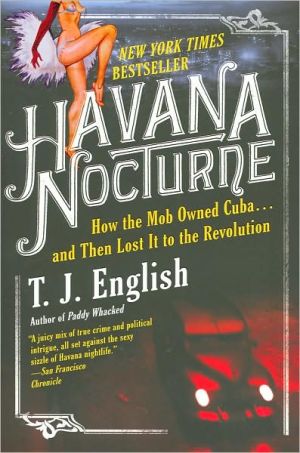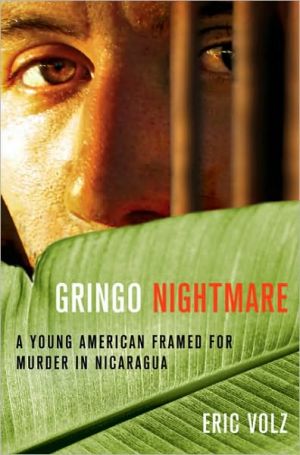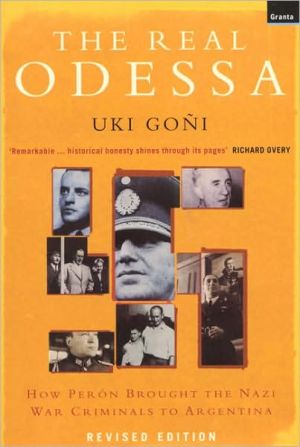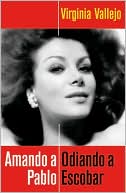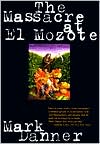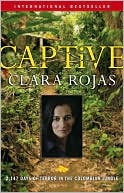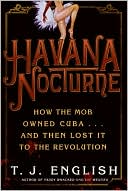Havana Nocturne: How the Mob Owned Cuba... And Then Lost It to the Revolution
To underworld kingpins Meyer Lansky and Charles "Lucky" Luciano, Cuba was the greatest hope for the future of American organized crime in the post-Prohibition years. In the 1950s, the Mob—with the corrupt, repressive government of brutal Cuban dictator Fulgencio Batista in its pocket—owned Havana's biggest luxury hotels and casinos, launching an unprecedented tourism boom complete with the most lavish entertainment, top-drawer celebrities, gorgeous women, and gambling galore. But Mob dreams...
Search in google:
An award-winning journalist, screenwriter, and historian offers the complete story of how the mob infiltrated Havana in the 1950s, made a fortune, and then lost it all to Fidel Castro. Publishers Weekly Old Havana mambos on the brink of the abyss in this chronicle of Cuba in the decades before the 1959 revolution. True-crime writer English (Paddy Whacked) presents an empire-building saga in which the "Havana Mob" of American gangsters, led by visionary financier Meyer Lansky, controlled Cuba. Empowered by permissive gambling laws and payoffs to dictator Fulgencio Batista, the Mafia poured millions into posh hotels, casinos and nightclubs, skimmed huge profits and sought to make Havana its financial headquarters. The results: exuberant nightlife, a giddy Afro-Cuban jazz scene, sordid backroom sex shows and the occasional grisly gangland hit. English revels in purple prose ("the island seethed like a bitch with a low-grade fever") and decadent details, including an orgy with Frank Sinatra and a bevy of prostitutes that was interrupted by autograph-seeking Girl Scouts and a nun. But his estimate of the importance of the Havana mob and its "showdown" with Castro's puritanical rebels seems inflated. More supplicant than suzerain to Batista, the mob focused on internecine feuds and paid little attention to the brewing insurrection. The casinos, hotels and nightclubs were all the mob owned-but they sure threw one hell of a party. Photos. (May)Copyright 2007 Reed Business Information
Introduction xiiiMobster MamboFeeling Lucky 3The Mob's Playground 30El Judio Maravilloso (The Marvelous Jew) 51Well-Charactered People 72Razzle-Dazzle 93The Ghost of Jose Marti 115Gambler's Paradise 139La Enganadora (the Deceiver)Arrivederci, Roma 161A Bullet for El Presidente 183Carnival of Flesh 205Tropical Vengeance 226A Handmade Woman 247The Sun Almost Rises 268"Get the Money" 289Epilogue 321Acknowledgments 331Appendix 335Notes 337Sources 369Index 381
\ From Barnes & NobleThrough most of the 1950s, Cuba was ruled by brutal dictator Fulgencio Batista. In Havana, however, a second government, no less powerful and no less brutal, ruled. Mob bosses Meyer Lansky and Charles "Lucky" Luciano turned the island's largest city into a devil's playground of gambling, prostitution, and drugs. In Havana Nocturne, T. J. English recounts a time when American gangsters plied their savage trade just 90 miles from U.S. shores.\ \ \ \ \ Sam Giancana"Finally, the definitive book has been written on the Mob’s heyday in Cuba. Havana Nocturne is at once compelling and incisive—an entertaining page-tuner that will both shock and inform."\ \ \ Legs McNeil"Sex and drugs and rockin’ mambo! Havana Nocturne is a dazzling parade through the Mob’s interests in Cuba. A must for Mob fans everywhere."\ \ \ \ \ Village Voice"While Havana Nocturne makes you glad that Batista and his gangster pals ultimately got what they deserved, it also makes you regret never having gotten the chance to soak up a few mojitos while catching the floor show at the old Tropicana."\ \ \ \ \ Miami Herald"Engaging….English’s brand of narrative is history, and he aims to set the record straight."\ \ \ \ \ New York Times Book Review"A whiz-bang account of the Mafia’s short-lived romp through 1950s Cuba."\ \ \ \ \ Miami Sun Post"It’s a roaring story, equal parts fact and myth, and for the first time, it gets told in its violent entirety by no less a crime scribe than T.J. English…compellingly telling."\ \ \ \ \ The Scotsman"All the razzle-dazzle is here—Sinatra, the black sedans, the showgirls—but English goes further, to show how gangsterismo permeated the politics of Cuba and influenced its destiny."\ \ \ \ \ San Francisco Chronicle"A tight storyteller, English provides a juicy mix of true crime and political intrigue, all set against the sexy sizzle of Havana nightlife."\ \ \ \ \ Washington Post"[An] excellent new book.… [English] provides a detailed account of the personalities and elements that made up Cuban life. His well-researched descriptions of how business, gambling, politics, revolution, music and religion all played off each other give Havana Nocturne a broad context and a knowledgeable edge."\ \ \ \ \ New York Post"[An] entertaining new book…by veteran crime writer T.J. English"\ \ \ \ \ San Antonio Express-News"Spellbinding prose…Havana Nocturne is a powerful reminder of how the mob nearly achieved its biggest payday and how Castro beat the house, forever changing the course of history."\ \ \ \ \ San Antonio Express-News“Spellbinding prose…Havana Nocturne is a powerful reminder of how the mob nearly achieved its biggest payday and how Castro beat the house, forever changing the course of history.”\ \ \ \ \ San Francisco Chronicle“A tight storyteller, English provides a juicy mix of true crime and political intrigue, all set against the sexy sizzle of Havana nightlife.”\ \ \ \ \ New York Post“[An] entertaining new book…by veteran crime writer T.J. English”\ \ \ \ \ New York Times Book Review“A whiz-bang account of the Mafia’s short-lived romp through 1950s Cuba.”\ \ \ \ \ The Scotsman“All the razzle-dazzle is here—Sinatra, the black sedans, the showgirls—but English goes further, to show how gangsterismo permeated the politics of Cuba and influenced its destiny.”\ \ \ \ \ Miami Herald“Engaging….English’s brand of narrative is history, and he aims to set the record straight.”\ \ \ \ \ Washington Post“[An] excellent new book.… [English] provides a detailed account of the personalities and elements that made up Cuban life. His well-researched descriptions of how business, gambling, politics, revolution, music and religion all played off each other give Havana Nocturne a broad context and a knowledgeable edge.”\ \ \ \ \ Village Voice“While Havana Nocturne makes you glad that Batista and his gangster pals ultimately got what they deserved, it also makes you regret never having gotten the chance to soak up a few mojitos while catching the floor show at the old Tropicana.”\ \ \ \ \ Miami Sun Post“It’s a roaring story, equal parts fact and myth, and for the first time, it gets told in its violent entirety by no less a crime scribe than T.J. English…compellingly telling.”\ \ \ \ \ Publishers WeeklyOld Havana mambos on the brink of the abyss in this chronicle of Cuba in the decades before the 1959 revolution. True-crime writer English (Paddy Whacked) presents an empire-building saga in which the "Havana Mob" of American gangsters, led by visionary financier Meyer Lansky, controlled Cuba. Empowered by permissive gambling laws and payoffs to dictator Fulgencio Batista, the Mafia poured millions into posh hotels, casinos and nightclubs, skimmed huge profits and sought to make Havana its financial headquarters. The results: exuberant nightlife, a giddy Afro-Cuban jazz scene, sordid backroom sex shows and the occasional grisly gangland hit. English revels in purple prose ("the island seethed like a bitch with a low-grade fever") and decadent details, including an orgy with Frank Sinatra and a bevy of prostitutes that was interrupted by autograph-seeking Girl Scouts and a nun. But his estimate of the importance of the Havana mob and its "showdown" with Castro's puritanical rebels seems inflated. More supplicant than suzerain to Batista, the mob focused on internecine feuds and paid little attention to the brewing insurrection. The casinos, hotels and nightclubs were all the mob owned-but they sure threw one hell of a party. Photos. (May)\ Copyright 2007 Reed Business Information\ \ \ \ \ Library JournalFollowing the success of his previous mob histories, Paddy Whackedand The Westies, English relates the rise and fall of the mob in Havana, from the early days of Meyer Lansky and Lucky Luciano to the cruel regime of Batista and then Castro's revolution. English's engaging narrative reads with the gripping quality of fiction: the dark underworld of Havana comes to life in the author's lively descriptions of gambling, drugs, and sex. Using government hearings, published sources, and his own recent interviews, the author shows us Lansky and the mob, for whom Cuba was a dream come true-a gambling Mecca turned money magnet-all under the protection of the corrupt Batista administration. Mobster types descended on the island for a share of the excitement and profits, but revolution was fermenting. The dream burst as Castro and the "bearded ones" targeted gambling, corruption, and American influences so prevalent in Havana. English mixes his own insights about the Cuban Revolution into his specific accounts of mob influence and criminal activity. The results are highly recommended for public and academic libraries.\ —Boyd Childress\ \ \ \ \ \ Kirkus ReviewsOr, how are you going to keep the syndicate in Sicily and Little Italy once the wiseguys see the bright lights of Havana?Crime writer English (Paddy Whacked: The Untold Story of the Irish-American Gangster, 2005, etc.) unfolds a story whose main outline will be familiar to any fan of The Godfather: Part II, but whose twists and turns no screenplay could keep up with. That story opens at the close of World War II, when Cuba was ruled by yet another in a line of dictators and mob boss Charles "Lucky" Luciano was, in theory, being deported to his native Italy after long imprisonment for various crimes committed in the United States, including extortion and tax evasion. Meyer Lansky, another prime suspect in the annals of American crime, knew otherwise. "Luciano was in Cuba," writes English, "and the Mob was on the move." Cuba was to become an offshore base for a new kind of organized crime, one that Lansky and Luciano had been working on for years, appealing as always to personal vice but with a sleeker veneer. Prefiguring Las Vegas, Havana became a headquarters for a kind of color-blind sex and music tourism. Jim Crow prevailed at home, but Jews and Italians could mix easily while listening to the dulcet tones of Eartha Kitt, Ella Fitzgerald and Johnny Mathis in the Cuban capital, "one of the hippest ‘scenes' in the world." (The popular singer and movie star Carmen Miranda is implicated, too, if only by association.) With the tourism came other business. As English notes, U.S. business investment in Cuba was $142 million at the beginning of the 1950s, and $952 million at the end of the decade, money that propped up the Batista regime-thus giving Fidel Castro yet another reason not to likeAmericans, or Italians, for that matter. A capably told history of how the Mob lost control of the island empire.\ \
